Coronavirus doctor's diary: 'We are first-hand witnesses of this devastation'
- Published
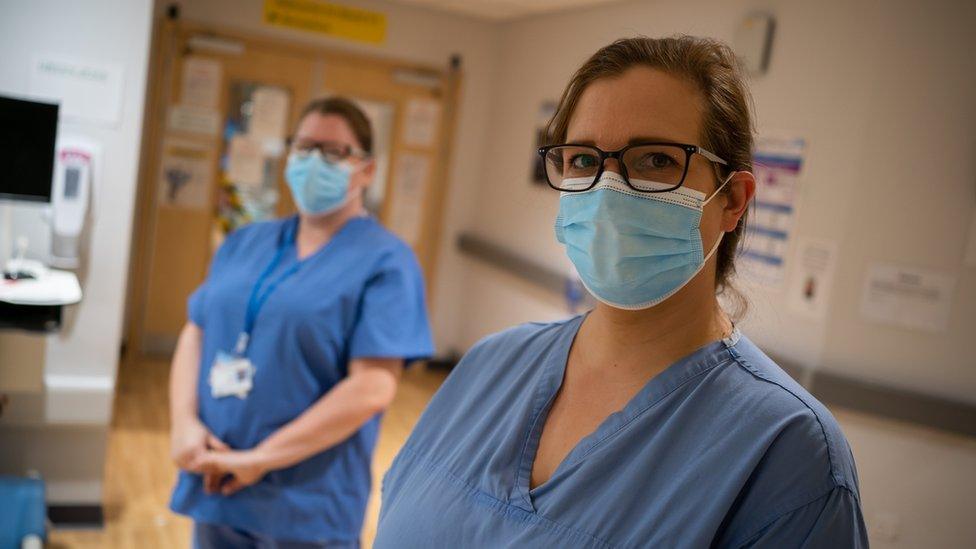
The second coronavirus wave has already put many hospitals under great pressure, and it's nurses and physios who bear the brunt of it, writes Dr John Wright of Bradford Royal Infirmary (BRI). Here he introduces four nurses, who describe the strain they are now under.
Work. Sleep. Repeat. Our doctors, nurses, physiotherapists and support staff have settled in to a weary routine. The hospital is nearly full. The patients we admit were infected a fortnight beforehand. The patients who are dying were infected a month ago - when the government's scientific advisory group, Sage, was recommending a circuit break.
The virus has used this time to great effect. In Yorkshire, one in 37 people tested positive in the last week of October - almost 3% of the population. This is a prevalence figure beyond our comprehension.
The avalanche has begun at the top of the mountain and we are readying ourselves at the base for its unstoppable force. As with the first wave, it is our 2,000-strong nursing staff who will bear the biggest impact.
Moira Whiting - staff nurse, ward 31
It's getting very busy. It felt like it had reached capacity last night and it looks like it's going to be worse - it's Covid on top of winter illnesses. As a team, I've noticed that we are bracing ourselves, and we are all coming down with aches and pains. We've talked about backache when we get home. There's just tension and we are all feeling it.
The mood has changed. At the beginning it was "Come on we can do this!", but now it's "Have we got to do this again?"
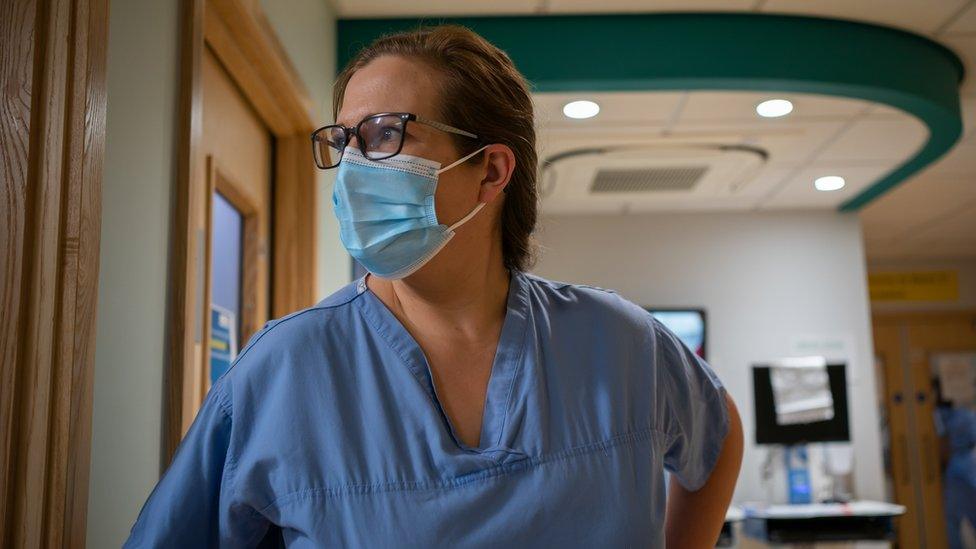
At the beginning, we didn't know how brutal the impact of Covid would be, and the toll it would take watching people you've got to know over a matter of days or weeks just deteriorate. We've seen the devastating impact on families - on a dad, a son, a wife - and we still talk about them as a team. We are always talking about them. We are first-hand witnesses of this devastation.
I've two young children of school age. Hannah is eight and my youngest just started school. On days off, home-schooling was a nice distraction, something else to concentrate on, but when they went back to school you had time to think of the enormity of everything.
Now I end up dwelling on things, thinking of families and nursing and what its impact is. I've got student nurses and I'm signing off their booklets and thinking how brave and amazing these nurses are, who are starting their careers in a pandemic.
And the admiration I have for my colleagues... One had to hold the phone as she was looking after a dying man, so that his wife could speak to him, and it was unbelievable that she could do that. She hadn't been able to have that conversation with her own husband because he died suddenly. She was so selfless.
One morning my daughter, Hannah, started wearing one of my scarves. I told her she could have it if she liked it, and was shocked - she said that if I died she'd have something to remember me by. She was so matter of fact. She's picking all of this up.
Karen Dawber - chief nurse, Bradford Royal Infirmary
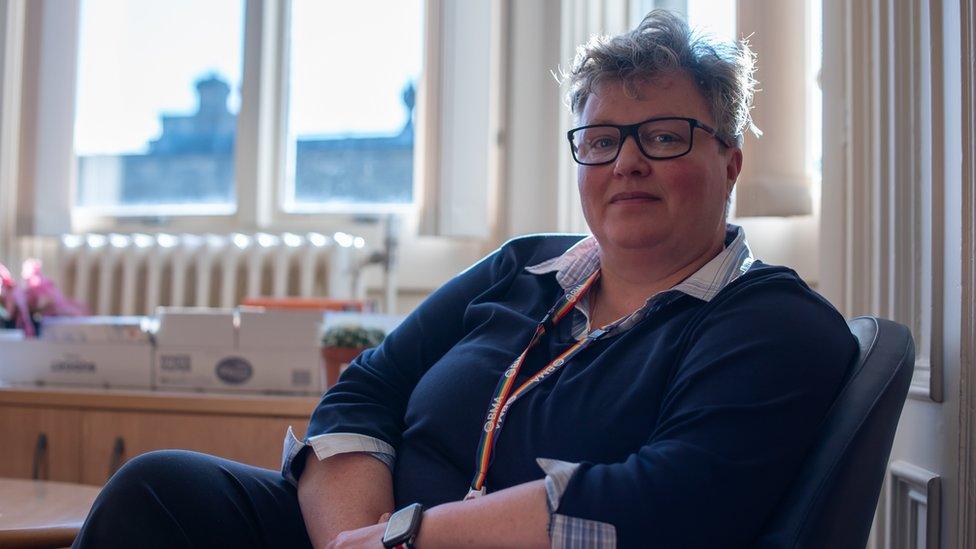
I went to live in a flat in Bradford for the first few months of the pandemic to be nearer the hospital, and because it was safer - my partner has multiple sclerosis and my daughter has learning difficulties and special needs, and I didn't want to take Covid back home. This time round I've got a caravan in between where I live in Lancashire and the hospital, so that I can be at the hospital quicker.
I started living there weekdays after I ended up driving in at 10pm at night because we were opening a red ward (for infectious Covid patients) at very short notice. Other staff came in that night. I've nearly 2,000 nurses making those sacrifices every day.
We have staff who have moved out to live elsewhere in order to protect relatives at home, staff who have cancelled holidays, who aren't seeing their loved ones because they're dedicated to working here and they see the urgency. But that can't go on forever. We've seen people recently coming to work in their own time on days off.
It's like a huge Sudoku puzzle staffing the wards, as we try opening new red wards. If we are opening extra wards we have to move nurses from other areas, and it's a hard one, as people still need operations. It's upsetting for everyone. If you're waiting for an orthopaedic operation and you're in pain you can't have that done because we need to redeploy the staff.
I am fearful... we are living in uncertain times. I'm 99% of the time a very positive person and hopefully we will get through this. The problem is that it's relentless - a lot of staff haven't had any downtime. But they are amazing, keeping going day in day out. I couldn't be prouder.
Emma Barnes - ward sister on ward 31
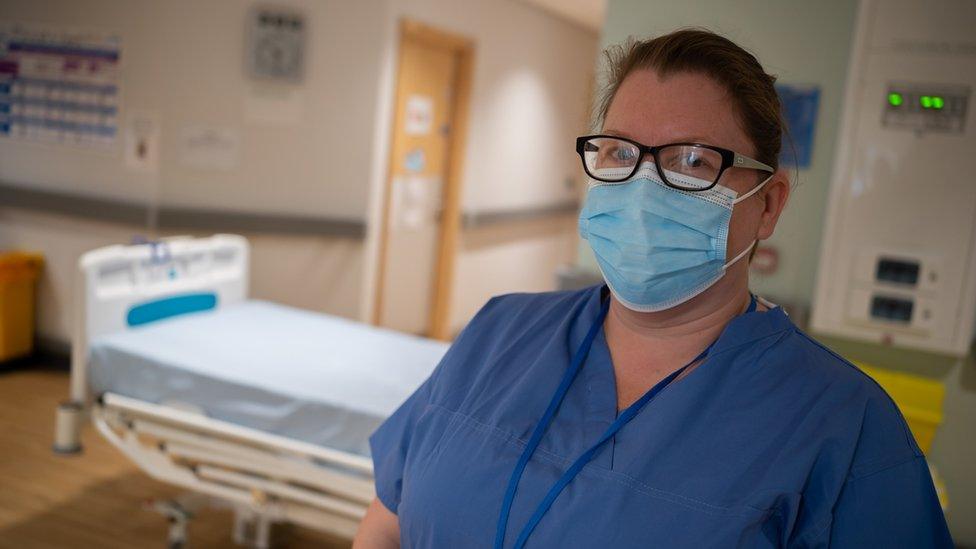
Every single shift is battling for beds. My role is constantly about looking who I can step down and move off the ward.
When you run at something and think you're going to win it and you don't, you have nothing left really. But we know this is our life until we get a vaccine. This is us. There's a lot of stress, a lot of people off with episodes of work-related stress. The counselling we were getting ended in August, but in the last two weeks it started again, because I had staff just crying - staff texting me to say they're crying in the car, on the way home. It's the relentlessness of it. I've cried. You just cry as the day is over.
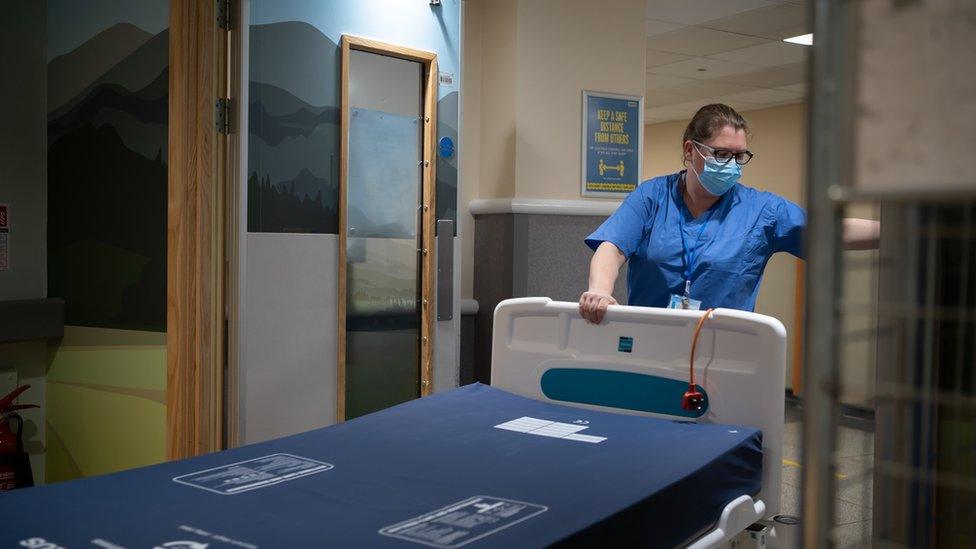
My husband's a nurse in surgery and so he's being sent to different wards most weeks. My daughter kept having palpitations, and I took her to the doctor. She's only seven and she was in the bathroom washing her hands because her tummy felt funny and she was so anxious about spreading germs. We've had some tests done but we think it's anxiety. I feel like I'm all right, but there's not much more I'm going to be able to take.
We are seeing much younger patients this time round. Last time the vast majority were older patients, this time most are in their 40s and we've got a lot more going on ventilators - they seem younger and sicker. But mortality is lower. We've learnt a lot and a lot of people are surviving because of what we've learnt.
Kelly Bell - registered nurse associate
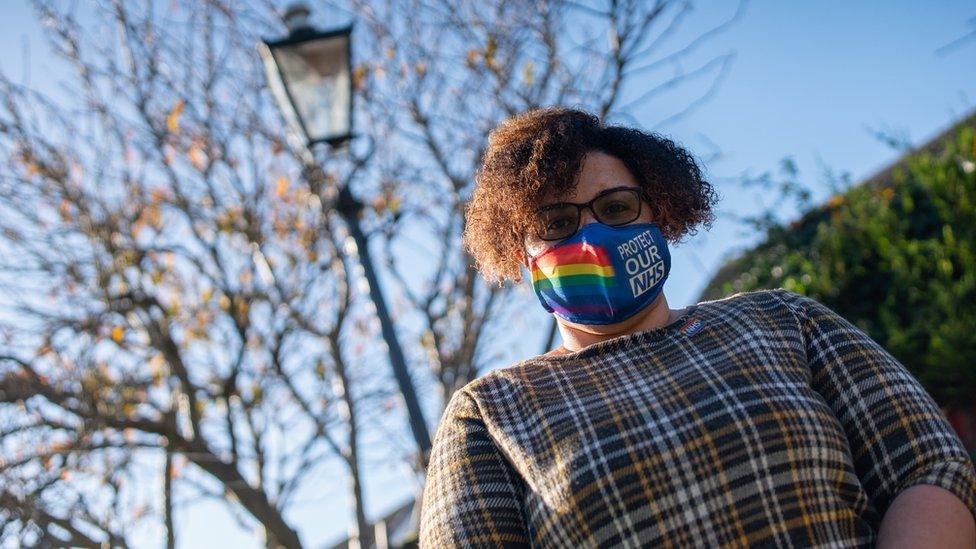
In May I had a headache, I was tired and I thought it was the stress. It wouldn't go away, and on the third day I was sat at the nurses' station and I thought I was going to pass out. I was tested for Covid twice - it was negative. It wasn't until June, when I went to Accident and Emergency, that Covid showed on the X-ray.
I had muscle spasms, fatigue and I couldn't take a breath or move. The only place I had been was work and shopping, so I think I got it at work - we were just surrounded by Covid patients and battling through it. We'd start work at 07:30 with one set of PPE then an email would come through that it wasn't the right sort of PPE. It was changing all the time and supplies were running low.
I felt like in June and July I slept - I was only woken up by my husband to go to the toilet. In August I felt a bit better but couldn't climb the stairs. It was unreal, there were so many things happening I couldn't describe it all.
By September I was staying awake more, could go up and down the stairs a bit easier, though my appetite hadn't really come back. I thought I was feeling better but it kind of stalled there.
I was a trainee nurse associate, and I qualified to be a registered nurse associate in June but I'm not well enough to start the job. Before I got ill, I wanted to focus on the people who were getting better and I thought of sticking love hearts on the door every time a patient went home, to give hope to the others. The idea spread everywhere (throughout the hospital), with hearts and positive messages.
At the moment my doctor doesn't feel I can go back to work yet. I've been going to the long Covid clinic. I'm only 33 and I was a get-up-and-go person. If you get it, it's pot luck and you could be unlucky.

Front-line diary
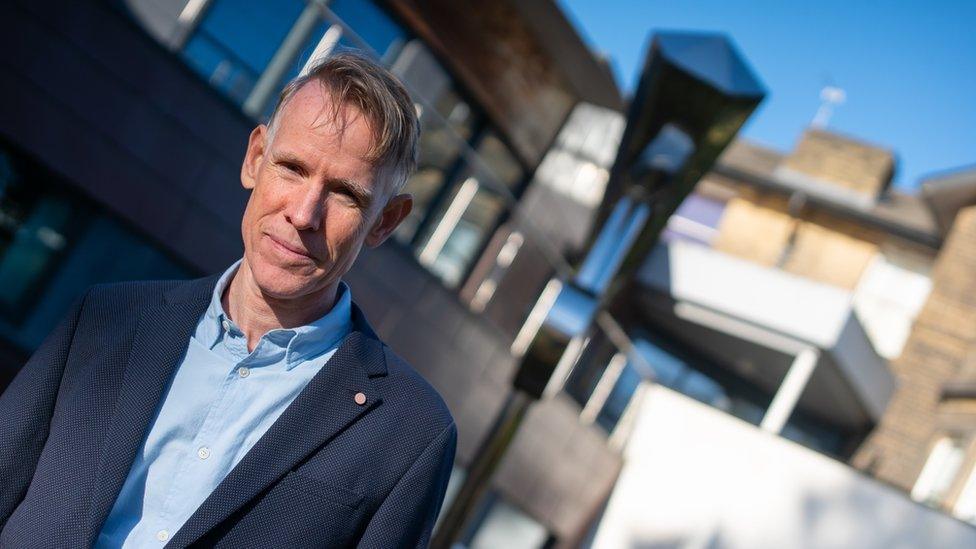
Prof John Wright, a doctor and epidemiologist, is head of the Bradford Institute for Health Research, and a veteran of cholera, HIV and Ebola epidemics in sub-Saharan Africa. He is writing this diary for BBC News and recording from the hospital wards for BBC Radio.
Listen to the new series of The NHS Front Line in November on BBC Sounds and the BBC World Service
Or read the previous online diary entry: 'Our hospital could soon be overwhelmed'
Follow @docjohnwright, external and radio producer @SueM1tchell, external on Twitter